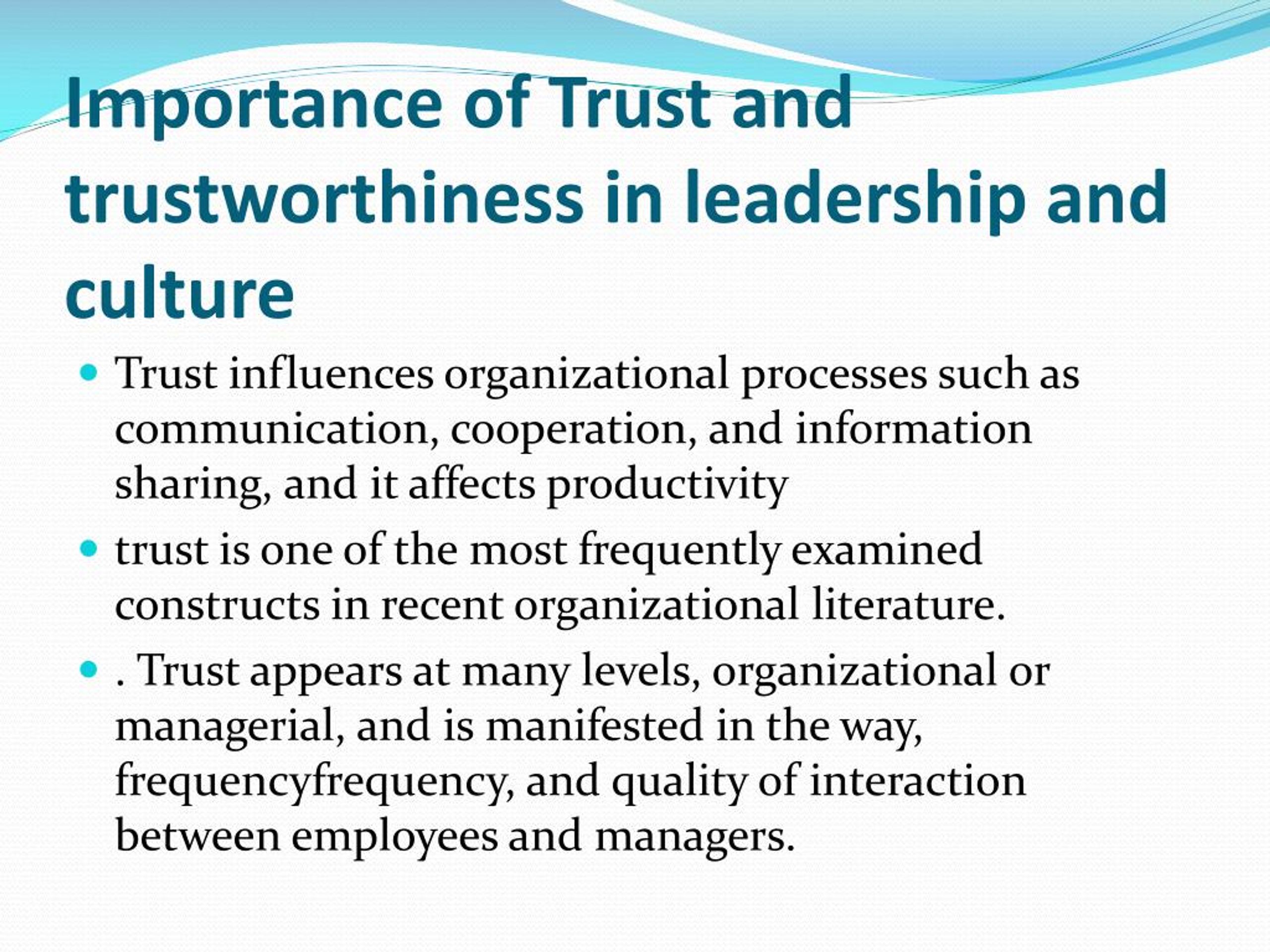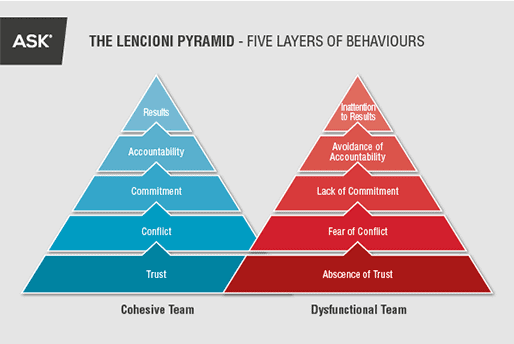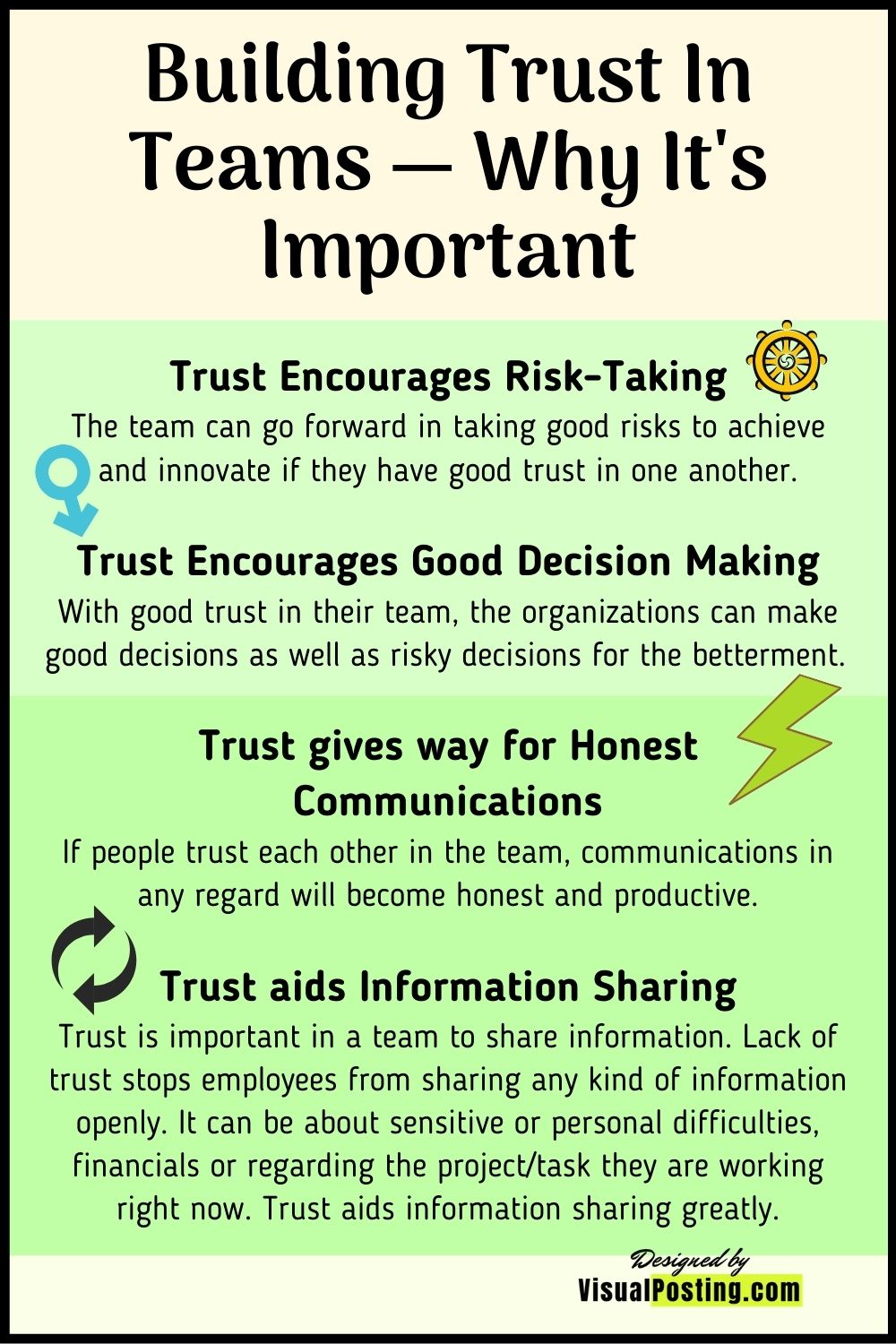Why Is Trust So Important In Leadership

In an era defined by rapid change and unprecedented challenges, the bedrock of effective leadership lies in a single, indispensable quality: trust. From corporate boardrooms to political arenas, the ability to inspire confidence and foster belief is increasingly recognized as paramount to achieving success and navigating complexity.
This article examines the critical role of trust in leadership, exploring its significance, core components, and far-reaching impact on organizations and society. It delves into why trust is not merely a desirable trait, but an essential ingredient for building cohesive teams, driving innovation, and achieving sustainable outcomes. Ultimately, without trust, leaders are simply managers of process.
The Foundation of Influence
Trust, in its simplest form, is the firm belief in the reliability, truth, ability, or strength of someone or something. For leaders, this translates into followers believing in their competence, integrity, and ability to act in their best interests. Without this foundation, any attempt at influence or direction is likely to be met with resistance or apathy.
Professor Amy Edmondson of Harvard Business School, a leading expert on psychological safety, emphasizes that trust is crucial for creating environments where individuals feel comfortable taking risks and sharing ideas. When team members trust their leader, they are more likely to engage in open communication and collaborative problem-solving.
According to the Edelman Trust Barometer, an annual survey measuring trust in institutions and individuals, a significant decline in trust across various sectors has become a recurring theme in recent years. This erosion underscores the urgency for leaders to actively cultivate and maintain trust with their stakeholders.
Key Elements of Trustworthy Leadership
Building trust is not a passive endeavor; it requires consistent effort and a commitment to specific principles. Leaders must demonstrate integrity by aligning their words and actions, acting ethically even in difficult situations.
Transparency is also crucial. Leaders need to communicate openly and honestly, sharing information and explaining decisions clearly. Vulnerability, showing authentic human aspects, is also an important factor.
Competence is a baseline expectation; leaders must possess the knowledge and skills necessary to guide their teams effectively. However, competence alone is not enough; it must be coupled with empathy and genuine care for the well-being of their followers.
The Impact of Trust
The impact of trust extends far beyond individual relationships; it has profound implications for organizational performance and societal progress. Organizations with high levels of trust typically experience increased productivity, improved employee engagement, and enhanced innovation.
Studies have shown that employees who trust their leaders are more likely to be committed to their work, recommend their organization to others, and go the extra mile to achieve organizational goals. A culture of trust reduces the need for excessive oversight and micromanagement, empowering individuals to take ownership and contribute their best work.
On a broader scale, trust in leadership is essential for addressing complex social and economic challenges. When citizens trust their government and institutions, they are more likely to support policies and participate in collective action.
Rebuilding and Maintaining Trust
Rebuilding trust after it has been broken is a challenging but necessary process. It requires leaders to acknowledge their mistakes, take responsibility for their actions, and demonstrate a genuine commitment to change. Communication, transparency, and consistency are vital components of this process.
Leaders must also actively listen to the concerns of their followers and work collaboratively to address the underlying issues that led to the erosion of trust. According to Stephen Covey, author of "The 7 Habits of Highly Effective People", trust is built in moments of vulnerability and through consistent acts of integrity.
Maintaining trust requires ongoing vigilance and a commitment to continuous improvement. Leaders must regularly assess the level of trust within their organizations and actively seek feedback from their stakeholders. Transparency and ethical conduct must be ingrained in the organizational culture.
The need for trustworthy leadership has never been more critical. The ability to inspire confidence, build cohesive teams, and navigate complexity depends on the foundation of trust. By prioritizing integrity, transparency, and competence, leaders can create environments where individuals thrive and organizations succeed.










-5.png?width=1184&height=666&name=Why Business Transparency Yields Trust (And Why That Matters)-5.png)







